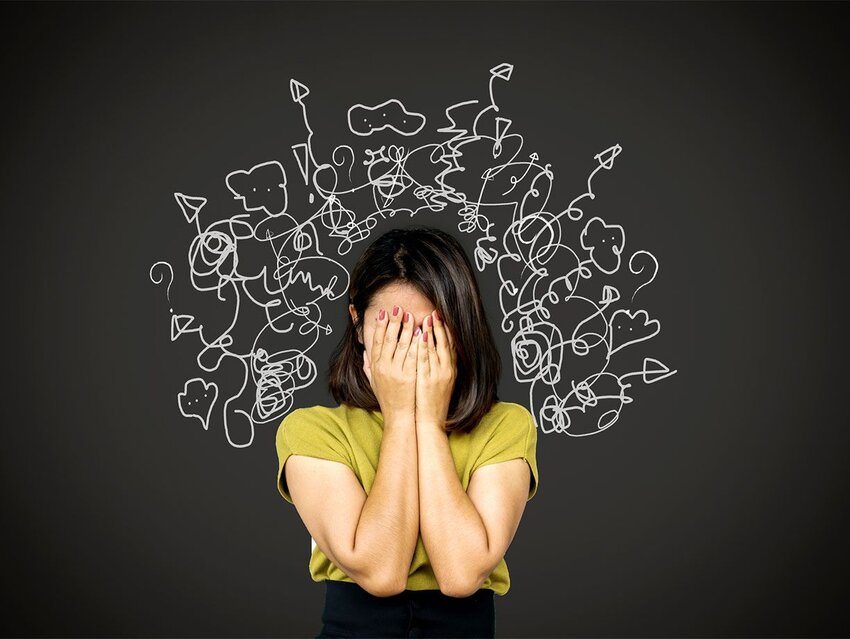Have you ever looked at a word so long, or said it so many times, that it almost didn’t feel like a real word anymore? In a 2006 study, neuropsychologist Chris Moulin asked 92 subjects to write common words such as “door” 30 times in 60 seconds. According to his research, 68% of his subjects reported variations of, “‘it looked like I was spelling something else,’ it ‘sounded like a made-up word,’ and ‘I began to doubt that I was writing the correct word for the meaning.’”
This is perhaps the most common manifestation of “jamais vu,” a phenomenon considered by psychologists to be the opposite of “déjà vu.” “Jamais vu” translates exactly from the French, meaning “never seen,” from the French verb voir, “to see.” In his 1983 book The Psychology of Déjà Vu, neuropsychiatrist Dr. Vernon Neppe defined “jamais vu” as “any subjectively inappropriate impression of non-familiarity of a present experience with an undefined past.”
In other words, “déjà vu” is when a new experience feels eerily familiar, whereas “jamais vu” is when a familiar setting feels like it’s being experienced for the first time.
Première, Déjà Vu
There would be no recognition of jamais vu without a base understanding of déjà vu, borrowed exactly from the French phrase, which literally means “already seen.” While writers and thinkers have been describing the phenomenon since as early as 400 CE, when St. Augustine called it falsae memoriae, French philosopher Emile Boirac first wrote the phrase “le sensation du déjà vu” to describe the experience in 1876 in his Revue Philosophique.
The scientific community wouldn’t recognize the term until 1896, when French neurologist F.L. Arnaud used it to describe a patient recovering from cerebral malaria who reported having “a vague sense of familiarity with everything that he encountered.”
By the time Neppe began studying déjà vu and jamais vu in the late 1970s, there were already 11 known “déjà” terms used by psychologists. Among them were déjà entendu (“already heard”) and déjà pensé (“already thought”). Other synonyms for “déjà vu” persisted for a while, namely “paramnesia” in English publications, but somehow, “because of the many French contributors and possibly the esoteric nature of French terms in English,” the French terms won out.
Emprunter, the French Verb “to Borrow”
Borrowing words from other languages is no new phenomenon; a common example is the German word schadenfreude, which describes the feeling of taking pleasure in the misfortune of others. A “loanword” is “a word adopted from a foreign language with little or no modification.” Sometimes English translations just don’t cut it, especially as it pertains to the aforementioned “esoteric nature of [these] French terms in English.” “Never seen” doesn’t quite roll off the tongue while also encompassing an entire concept the way “jamais vu” does.
As far as where “jamais vu” originated, it’s unclear. In all likelihood, it’s another offshoot of French scientists’ influence on this particular field of memory study. While Neppe is one of the more well-known researchers on the topic, psychiatrist Alan S. Brown notes in the “Jamais Vu” chapter of his 2004 book The Déjà Vu Experience that psychologists had been considering and writing about the phenomenon throughout the 20th century, as early as 1903. And since then, other psychological terminologies have grown from that original French root vu, such as “presque vu,” meaning “almost seen,” which defines the feeling of having a word or idea right on the tip of your tongue.
Featured image credit: Doucefleur/ iStock

